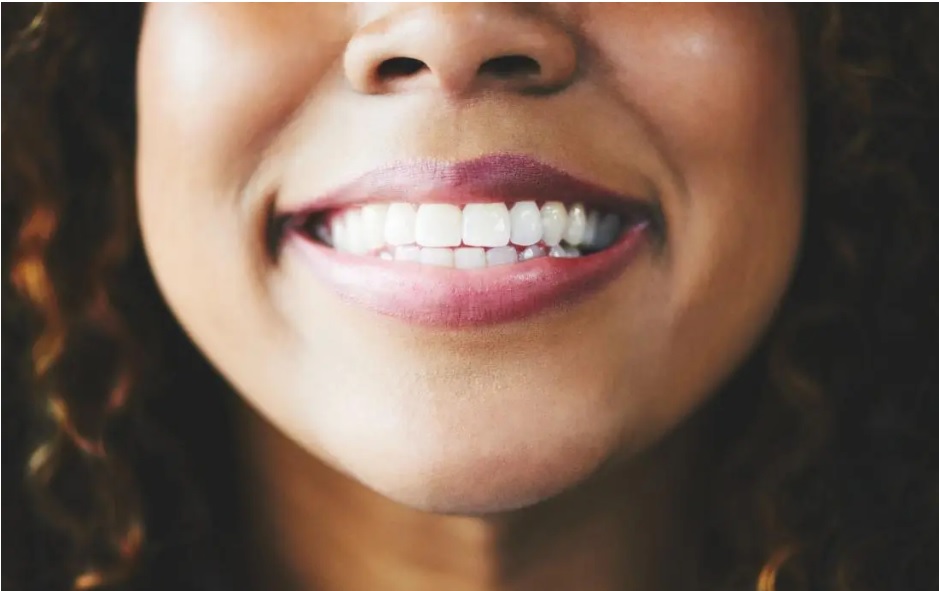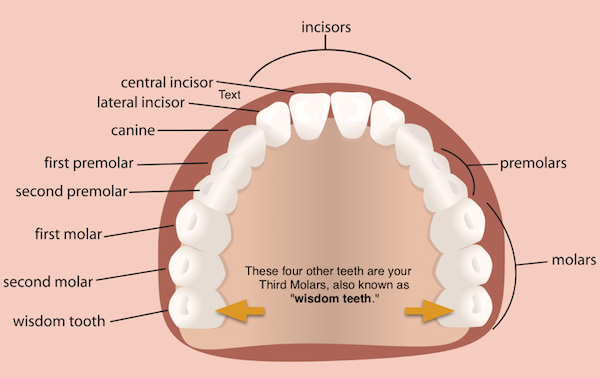Who knew humans had a third set of teeth?
Most people are born with 20 baby teeth and 32 permanent teeth. But about 1% of people have a condition called hyperdontia, meaning they have extra teeth called supernumerary teeth.
These supernumerary teeth may be baby teeth or permanent teeth, and there may be one or more of them. However, according to Katsu Takahashi, head of the department of dentistry and oral surgery at the Medical Research Institute Kitano Hospital in Osaka, Japan, about one in three cases of hyperdontia results in the growth of a third set of teeth.

What’s interesting is that Takahashi and his colleagues believe that all humans once had the ability to grow a third set of teeth, but that this ability was lost over time. There is even evidence that the “buds” for a third set of teeth may still exist.
Pioneering work for a tooth-regenerating drug
Sharks and certain reptiles have a unique ability: their teeth regenerate continuously throughout their lives, sometimes as often as every two weeks. Could humans also use this regenerative power to grow new teeth after they are lost? Takahashi and his team strongly believe in this and are currently developing a drug to try to make this a reality.
Their groundbreaking work, published in 2021, revealed a protein produced by uterine sensitization gene-1 (USAG-1 gene) that impedes tooth growth in mice. By using a neutralizing antibody drug to block USAG-1, the mice successfully grew new teeth. Now the team is focused on translating these findings into a human drug designed to treat anodontia – the complete absence of teeth – in children ages 2 to 6.
Clinical trials are scheduled to begin in July 2024, and the product could reach dental practices by 2030. Takahashi told the Mainichi:
“The idea of growing new teeth is every dentist’s dream. I’ve been working on this since I was a graduate student. I was confident I could do it. In any case, we hope for a time when dental growth medicine is a third choice alongside dentures and implants.”
Does a third set of teeth exist in humans?
In a review published in the journal Regenerative Therapy in 2023, Takahashi and colleagues detailed advances in tooth regeneration. They wrote: “Treatment with anti-USAG-1 antibodies in mice is effective in tooth regeneration and may be a breakthrough in the treatment of dental anomalies in humans.” They continued:
“Given that approximately 0.1% of the population suffers from congenital dental agenesis and 10% of children worldwide suffer from partial tooth loss, early diagnosis will improve patient outcomes and quality of life. Understanding the role of USAG-1 pathogenic variants, their interacting gene partners, and their protein functions will contribute to the development of important biomarkers.
Advances in next-generation sequencing, mass spectrometry and imaging technologies will help develop companion and predictive biomarkers to identify patients who will benefit from tooth regeneration.”
In humans, the potential for tooth regeneration depends on what experts like Takahashi call the “third set of teeth,” an additional set of teeth thought to occur naturally in humans.
“In addition to the permanent dentition, humans can have a third dentition with one or more teeth. In some cases, this third set of teeth is thought to develop as a partial set of teeth after the permanent set of teeth,” they explain. “A rudimentary epithelial form of the third dentition has been identified in humans. Detection of the third dentition in early childhood facilitates the visualization and characterization of hyperdontia in the mouths of infants and some fetuses.”
In addition to studies on mice, researchers also experimented with ferrets and found that using antibodies targeting USAG-1 resulted in tooth regeneration, similar to the concept of a third set of teeth. “This result is encouraging, considering that ferrets have dental patterns similar to humans,” says the journal Regenerative Therapy.
Although further testing of safety and effectiveness is essential, the team remains optimistic about this treatment’s potential to stimulate tooth growth in humans.
“Compared to dental implants and prostheses, treatment with antibodies is less expensive and uses a naturally existing third set of teeth in people of a certain age. Treatment with anti-USAG-1 antibodies in mice is effective for tooth regeneration and may be a breakthrough in the treatment of dental anomalies in humans.”
Understanding Wisdom Teeth: Deciphering the Role of the “Third Molars”
Wisdom teeth, often referred to as “third molars,” are not independent teeth, but are the last teeth to erupt in adulthood. It is thought that these molars, which typically appear between the ages of 18 and 24, may have served a specific purpose in our ancestors, who had larger jaws and more teeth.
However, because human jaws have evolved to be smaller, wisdom teeth sometimes do not fully erupt through the gums. If they do break through, they can cause problems if there isn’t enough space. Oral health specialists usually recommend removing wisdom teeth if they grow at an awkward angle, cause discomfort, cause tooth decay, or impact on adjacent teeth, causing inflammation.
Despite these recommendations, many parents choose to have their teens’ wisdom teeth extracted preventatively, even when there are no obvious problems. Statistics indicate that approximately 5 million people have wisdom teeth removed each year, although many of these procedures may be unnecessary. A 2005 Cochrane review also found that a significant number of wisdom tooth removals could be avoided.

The review highlighted the importance of prudent decision-making based on specific extraction indicators, which could reduce the need for surgical intervention by 60% or more. Additionally, the authors suggested that close monitoring of asymptomatic wisdom teeth may be a useful approach. A later 2020 Cochrane review revisited the ongoing debate over the removal of asymptomatic and disease-free wisdom teeth:
“Erupted wisdom teeth can lead to swelling and ulceration of the gums around the wisdom teeth, damage to the roots of the second molars, tooth decay in the second molars, gum and bone disease around the second molars, and the development of cysts or tumors.
There is general agreement that wisdom tooth removal is appropriate when signs or symptoms of wisdom tooth-related disease are present, but there is less agreement on how asymptomatic, disease-free impacted wisdom teeth should be treated.”
The connection between oral health and the health of your body
The drug the researchers are testing is initially intended to promote tooth regrowth in patients with anodontia, but its success could pave the way for broader applications, including treating tooth loss. However, it is important to know that deteriorating oral health not only affects your teeth, but also your overall well-being.
Without preventative oral hygiene, you may develop gingivitis, an inflammatory condition caused by the buildup of plaque or bacteria on the teeth. One of the symptoms of gingivitis is red, bleeding gums. If left untreated, gingivitis can progress to periodontitis, a serious infection that can lead to tooth loss.
Additionally, dental health has a significant impact on brain health, as shown by studies linking gum disease and hippocampal atrophy, the shrinking of a brain region linked to Alzheimer’s disease. In a study of 172 people ages 55 and older, both gum disease and the number of teeth were linked to changes in brain structure. Participants with mild gum disease and fewer teeth had accelerated shrinkage in the left hippocampus.
In this cohort, researchers found that people with one fewer tooth experienced greater brain shrinkage, equivalent to almost a year of brain aging.
A systematic review and meta-analysis of 13 studies found a significantly increased risk of Alzheimer’s disease and mild cognitive impairment in individuals with periodontitis compared to individuals without periodontitis. This risk was particularly pronounced in people with severe periodontal disease. Beyond cognitive decline, periodontitis has been linked to several systemic diseases, including:
- Diabetes
- Heart disease
- Respiratory diseases
- Adverse pregnancy outcomes
- Cancer
- Diseases of the nervous system
Recognize warning signs of oral health problems
Nearly half of adults age 30 or older – about 46% – show signs of gum disease, and about 9% have severe gum disease. The tricky element, however, is that many people are unaware of their condition as gum disease often remains “silent” and does not show any signs or symptoms until it has reached an advanced stage.
In the early stages of gingivitis, you may notice that your gums bleed when brushing your teeth, flossing, or eating hard foods. Additionally, your gums may appear red or swollen. As the disease progresses, your gums may recede, making your teeth look longer. It can also cause loose teeth, mouth sores, bad breath, and pus between the gums and teeth.
Unlike anodontia, a rare genetic disorder that causes tooth loss, tooth loss later in life can often be prevented through proactive oral health measures. Consistent oral hygiene such as regular tooth brushing, use of dental floss and tongue scraper coupled with routine cleanings by a mercury-free biological dentist play a critical role in maintaining healthy teeth and gums.
A lifestyle that emphasizes a diet of fresh, whole foods is also crucial for a naturally clean mouth and good oral health. Another beneficial method is oil pulling, which involves applying a small amount of oil, e.g. coconut oil, swish in your mouth for about 20 minutes before spitting it into the trash.
When combined with regular brushing and flossing, oil pulling can help reduce gum inflammation and plaque, as well as the number of bacterial colonies in saliva. To achieve good results, only a small amount of oil is required – 1 tablespoon for adults and 1 teaspoon for children.
Coconut oil, known for its antibacterial and antiviral properties, is particularly suitable for oil pulling. Research has shown that coconut oil is as effective as chemical mouthwashes (chlorhexidine) in reducing plaque, gingival value, bleeding gums and gingivitis, highlighting its potential oral health benefits.
While the concept of growing a third set of teeth is promising, the potential side effects of using medication to achieve this goal are uncertain. For now, by being attentive to your own oral health, you can ensure that your teeth stay firmly in place – where they belong – at every stage of life.
Author: Dr. Joseph Mercola
yogaesoteric
April 7, 2024
